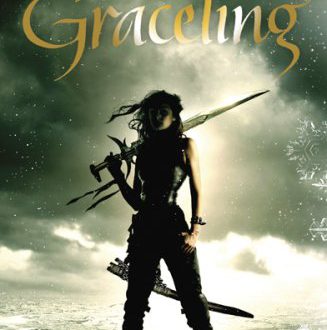Young Adult Bashing is intimately connected with Gender Prejudice
So, yesterday, I heard about some drama happening the Young Adult twittersphere. Once again, it was due to yet another journalist taking shots at the Young Adult literature market as a whole. I’m not going to link the article because I don’t believe it deserves anymore attention. It was yet another article de-legitimizing the entire market like all the other 1009809234 articles written on this subject.

Yawn.
As I was thinking about this article, I wondered about whether or not other types of kidlit get as much hate as YA. And I wrote a thread on twitter that got a bit of attention:
What's interesting to me about this weird aversion to YA is that it doesn't seem to be extended to younger kidlit like middle grade etc.
— Sarah Raughley (@s_raughley) August 10, 2017
The crux of the thread is that middle grade especially doesn’t seem to earn as much hatred and ire from journalists (at least I think so) and as someone that absolutely adores both middle grade and YA literature, I wondered why that was. If it was really about hating stories for youth in general, than why aren’t people writing articles trying to de-legitimize middle grade, picture books, or chapter books? Perhaps these articles are being written but if so, it certainly doesn’t seem as if such articles come out with as much frequency as the articles written to de-legitimize Young Adult literature.
It’s not just about youth. It’s about teenagers. Most importantly, in my estimation, it’s about women. That brings us to the crux of today’s lesson.
As I write in the tweet thread, I think middle grade gets less hate from the mainstream because I believe it has a larger percentage of straight white males writing it and reading it. Of course, regardless of the gender, race and sexuality of the authors, there is amazing middle grade work being put out and I love that. On the other hand, Young Adult literature is largely written by women. Of course, there are different genders writing (and reading) Young Adult as well, but women are definitely the public face of the market. From a public perspective, Young Adult stories largely feature girls as the main protagonists, privileging their agency and their perspectives. Their sexualities are not for male consumption either. Their hopes, dreams, sexual desires and goals are placed at the forefront. That’s what I call female empowerment.
This is what I think bends a lot of people out of shape.
Now there’s a lot that can be said of the quality of some of the popular YA stories that have been adapted to movies. However, in a world where Transformers can make billions and have several sequels, I think we have to look a bit deeper at the kind of gender bias that seems to simmer beneath so many of the articles bashing YA lit and YA lit-adaptations. This is the kind of resentment that has Young Adult Literature pegged as terrible before a single word of it is read.
What I find in these articles is not a legitimate critique or close reading of these texts. What I find instead is the underlying anger that these texts exist and are popular and lucrative in the first place.
Samantha Bee has done great pieces discussing the bullying and abuse of women on and off the internet by a large contingency of men online. She’s discussed the resentment, anger, racism and misogyny that often takes aim at women and women’s work both online and offline.
Many women writers have been targets of online attacks and abuse. And although this abuse has its extremist forms on the internet, it has a lifeline to the mainstream because its gendered and racialized ideology IS mainstream. I’m talking about the normalization of the idea that anything women enjoy must be of bad quality, from books, to TV, to music.
Connected to this is the de-legitimization of women’s voices, experiences and POVs (which are privileged in YA). Connected to this also is the suspicion towards any women who exist and thrive in male dominated spaces (like the publishing world, or like the gaming world, or in geek fandoms).
I guess, in that way, you can think of the sexism discussed in the Samantha Bee video as having a twin in mainstream journalists and critics who go out of their way to tell female creators that their work is meaningless, who constantly tell girls that what they read, listen to, play, and watch on television is ‘bad’ by virtue of the fact that they are the ones consuming it (let’s not forget Young Justice was canceled in the first place because too many girls were watching it).
Certain journalists are determined to never take YA seriously.
But unlucky for them, we in the Young Adult publishing world take their misogyny seriously. And I know many female kidlit authors like myself will continue to call the discrimination and abuse out no matter how many people try to silence and intimidate us.

One Comment
Pingback: